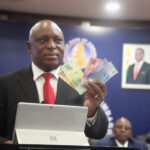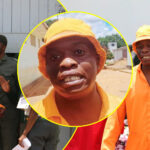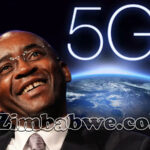In any thriving democracy, a foundational tenet remains undisputed: for the electoral process to truly reflect the will of the people, the outcome — be it victory or defeat — must be accepted with grace and dignity.
In recent years, election denialism has become increasingly widespread globally.
From the 2020 elections in the USA to the 2022 Brazilian elections and countless others, the concerning trend of losing candidates failing to recognise the will of the people is becoming ever more widespread.
As Zimbabwe gears up for its forthcoming elections, signs point to a likely victory for the Zanu-PF presidential candidate, President Mnangagwa.
Regardless of the final outcome of the upcoming harmonised elections, it is imperative that all political contenders, irrespective of their ambitions and aspirations, prepare to receive the electoral verdict with decorum.
It is worth noting that Nelson Chamisa’s difficulty in accepting electoral defeat seems to have become a recurrent pattern over the years.
Looking back after his loss to Douglas Mwonzora for the MDC secretary general position, he reportedly claimed the process was rigged, leading to further fragmentation within that party. Again, in 2018, following a fair loss to President Mnangagwa, Chamisa vehemently resisted accepting the outcome, alleging election tampering.
This pattern begs the question: Why is Chamisa consistently the singular voice raising concerns of impropriety upon his electoral defeats?
Could it be possible that he is not the people’s choice, and his allegations are a smokescreen to mask this reality?
On August 11, speaking on HSTV’s Free Talk show, Chamisa announced, “Let it be known that there is no way Zanu-PF is going to take leadership in this country. We can’t lose; we will not accept fake things. Victory is ours. Anything that is announced outside our victory is a lie, it’s fiction.”
Such proclamations run the risk of stoking political unrest and inciting violence, threatening the very foundations of Zimbabwe’s democratic tradition.
Chamisa should know that a democratic election is not one where the outcome is pre-ordained or where legitimacy hinges solely on a particular candidate’s victory.
Contesting an election carries with it the inherent risk of defeat, not to mention undermining the public’s faith in core institutions.
If the notion of potential loss is unbearable, one may question the rationale behind running for public office.
Chamisa’s political rhetoric asserting guaranteed victories is dangerous, misleading, and threatens the very fabric of the country’s democracy.
Over the years, Zimbabwe’s electoral process has consistently shown resilience against rigging accusations.
The nation has invested heavily in transparent and tamper-proof mechanisms to ensure the people’s voice is genuinely represented in the ballot box.
The Zimbabwe Electoral Commission (ZEC) has progressively adopted advanced voting technologies, streamlined voter registration processes, and taken measures to educate the masses on the electoral process.
Furthermore, the presence of international and local observers at polling stations adds another layer of scrutiny. These observers, from various organisations and countries, are trained to monitor elections impartially.
Their role is to ensure that the voting process is free from malpractices and that the results genuinely reflect the will of the people. Besides, party agents from all contesting parties are stationed at polling booths, counting centres, and even during the transportation of ballot papers.
With such meticulous oversight, a scenario of systemic rigging has been rendered practically infeasible.
For the good of Zimbabwe’s democratic values and the voting public, Chamisa needs to introspectively consider putting national interests ahead of personal ambitions. Plunging the nation into chaos because the election results are not favourable to him is neither constructive nor mature. Democracy is a collective process, not a personal entitlement.
Zimbabwe looks upon this election as a testament to its political maturity.
The global community is watching keenly, hoping for a transparent process and peaceful outcome.
For the nation to move forward, it is essential that political leaders such as Chamisa showcase political maturity, by rising above personal ambitions for the greater good.
Chamisa should know that every election is a reflection of people’s hopes, dreams, and aspirations.
The ballot box is where citizens exercise their most fundamental democratic right.
To discredit that process is to discredit the very people who partake in it. The rhetoric of guaranteed victory, therefore, is not just an affront to the electoral system but also an insult to every Zimbabwean voter.
The forthcoming elections are not just about selecting a leader; they are about upholding the democratic spirit of Zimbabwe.
Every candidate, including Chamisa, must respect that spirit. The credibility of an election is not determined by the outcome but by the integrity of the process and the acceptance of its results.
All stakeholders, from political candidates to their supporters, must prioritise the nation above all else.
Zimbabwe’s future hinges on the decisions made today. Let those decisions reflect wisdom, maturity, and a genuine love for the nation and its people.
— Chronicle

Follow @MyZimbabweNews











